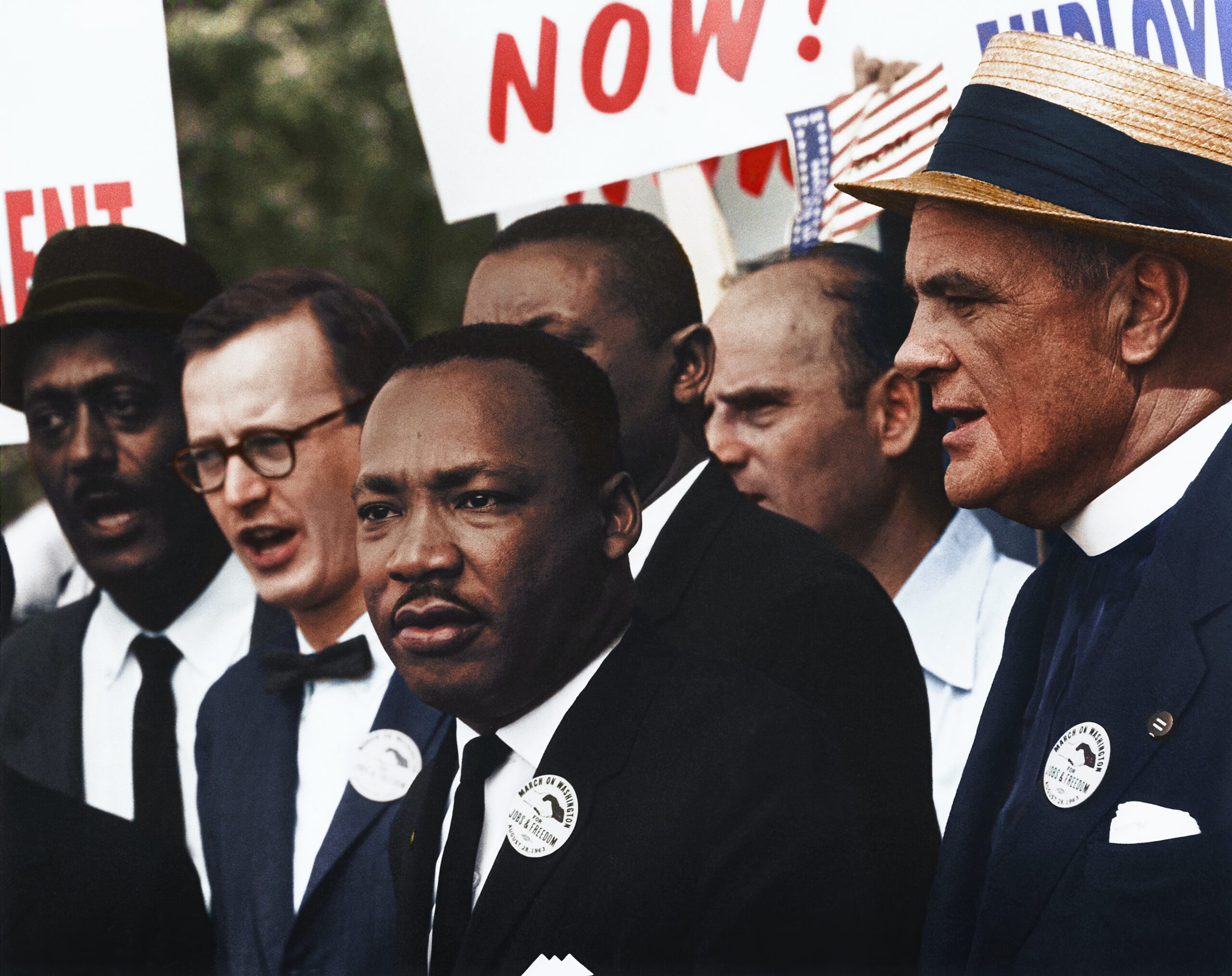Written by Y-WE’s Co-Executive Director, Reagan Jackson
Originally published on the South Seattle Emerald
Growing up in my household, MLK Day was a day on, not a day off. It was a time to honor the legacy of a great leader and get inspired for the year of activism to come. In addition to founding the Southern Christian Leadership Conference, some of the Rev. Dr. Martin Luther King Jr.’s achievements included organizing the Montgomery Bus Boycott, helping to get segregation laws changed in Birmingham, and standing strong in his commitment to nonviolence in the face of virulent racism.
For many, Dr. King is an icon, a legend, a martyr, the face of the Civil Rights Movement, the voice of a visionary whose “dream,” while remaining unrealized, has been incorporated into the metrics of success for the contemporary wave of liberatory movements. When the road seems unending and treacherous, we reach for the comfort of Dr. King describing the arc of the moral universe and its bend toward justice. We want so desperately to believe it.
I live in a community that continuously seeks, but rarely finds the holy grail that is justice. Dr. King once stated: “The ultimate measure of a man is not where he stands in moments of comfort and convenience, but where he stands at times of challenge and controversy.”
And here we stand, in a time of great challenge and controversy. With the echoes of Black Lives Matter chants still ringing in our ears, many have turned their focus toward outrage and efforts to disrupt the heartbreaking state-sanctioned genocide in Gaza. Some fight for the disruption of death in Sudan and the Congo. (Or at least remember to pay lip service to the struggles with genocide in Africa while on their way to stand with Palestinians.) Closer to home, the overturn of Roe v. Wade threatens reproductive freedom while crooked politicians try to strip us of our right to vote. Every day feels like an emergency. So many fires, literal and metaphorical, are burning simultaneously that at times it’s easy to get swept up in hopelessness.
We are also burdened with cancel culture, competing agendas, and social media, which is just as evil as it is addictive and entertaining. Everything is urgent and urgently overwhelming. There is no grace for anyone, only blame, shame, and the paralyzing guilt and fear of either offending someone by saying or doing the wrong thing or being silent and unresponsive at the wrong time. It’s exhausting and demoralizing and everything seems unprecedented. It feels like this is the first time it’s ever been this bad, and there is some truth to that. Many of us are living through this particular set of challenges for the first time. But when we look back at our ancestors, we know they lived through their trials too, and life was just as messy and impossible to prepare for.
Even our brightest heroes cast dark shadows. For me, this year’s inspiration comes not from Dr. King’s light, but from his imperfections. I want to distinguish the man from his leadership. I think with the passing of time Dr. King has been allowed some latitude around his personal failings as a husband and father, or rather that these things have been overshadowed by the magnitude of his leadership. Rarely do we talk about who Dr. King was as a leader in a way that provides any space for imperfection. We only see him standing on the steps of the Lincoln Memorial alight with vision, conviction, and a deep faith that his way was the correct way to meet that moment in history. What kind of mistakes could possibly be attributed to the youngest person to ever win the Nobel Peace Prize?
We gloss over the harms caused by Christian respectability politics and the way women and queer folk integral to the success of the movement were often marginalized or relegated to doing the heavy lifting behind the scenes — and that Dr. King, along with many leaders of that time, was complicit in this.
As I turned on Netflix to watch Rustin, the biopic about Bayard Rustin, a less talked about, but essential, organizer in the Civil Rights Movement, it showed a different side of things. The film opens with Rustin, Ella Baker, and A. Philip Randolph attempting to convince Dr. King to disrupt the 1960 Democratic National Convention. It is Rustin, whose belief in this young minister, inspires him to take on the challenge. The next scenes depict the deep friendship between Rustin and Dr. King. They were as close as brothers.
But when Congressman Adam Clayton Powell finds out about their plans, he takes offense at their audacity to do something like that on what he considered his territory. He weaponizes Rustin’s identity as a homosexual and threatens to expose “the King and his queen, and I don’t mean Coretta.” Dr. King betrays their friendship in a pragmatic attempt to distance himself from perceived scandal, and Rustin is left devastated and ostracized from a movement he helped to build.
This is how respectability politics work and why Rosa Parks and not Claudette Colvin became the galvanizing figure for the Montgomery Bus Boycott. Colvin, a 15-year-old, was no less brave, worthy, or willing to sacrifice for the movement, she simply did not fit the image of a “respectable” Black woman. Internalized white supremacy causes us to need to prove over and over that we are worthy even if it means perpetuating the violence of rejecting our own when we don’t fit neatly into what is deemed socially acceptable.
In the end, Rustin proves himself to be an indispensable ally and organizer, the only one capable of pulling together the historic march on Washington, where gospel singer Mahalia Jackson, one of the only women whose voice was heard that day, implored Dr. King to share his dream with America and the world.
My intention in writing this is neither to villainize nor glorify Dr. King’s actions, but to acknowledge that the truth of any leader is complicated, at times contradictory and messy. Rather than feeling disappointed by King’s homophobia and the cowardice hidden beneath his pragmatism, it felt encouraging to see him as a human being capable of brilliance but also folly. In seeing his feet of clay and his biases, watching him make mistakes while attempting to balance the nuance of personal feelings and connections with his commitment to the greater goals of his organizing principles, we allow him to inhabit the fullness of his humanity. What better way to honor his legacy than to see Dr. King in all of his complexity and love him still?
We need to normalize telling the truth about how hard it truly is to lead with integrity and that having a strong moral compass is still no guarantee that we’re doing it right or that we won’t hurt the people we care about. Our movements need critical-thinking, compassionate, good-hearted people who are willing to take necessary action for social transformation, but also people who are willing to make mistakes and not be limited by perfectionism or appearances. We need leaders who can, when presented with new information, change their minds, grow and learn, and, yes, even sometimes fail utterly. And when we fail, we must take accountability for our failures, make amends to the allies we harm, forgive ourselves, and then get up the next day and do better.
While I remain curious about how Dr. King went about making repairs and whether he and Rustin’s personal friendship survived such a painful wound, it was clear they were at least able to work together to collaborate for the greater good.
Movies only show us so much, and I’m sure this was a very sanitized account of their story. However, somewhere along the line of the countless retelling of the King legacy, we often miss the mess that could be just as instructive as the triumphs. To quote one of my favorite bumper stickers: “no mud, no lotus.”
We live in a society obsessed with before and after pictures. We want all the freedom with none of the struggle or gritty growth it takes to earn it. I was reminded by a friend, Leilani Mañulu, that we can never know the full spectrum of why we’re here or what we’re meant to do until after the fact. At no point do we have all of the information necessary to know if we’re doing the “right thing.” We are, to a certain extent, fumbling around in the mud, but what would be worse is never having the courage to get dirty. What would be worse would be never heeding the call of our spirits to try.
The truth is, it’s grimy down here in the trenches. We’re tired and hungry for a full meal of justice long denied. We are all on each other’s last nerve, disagreeing daily about how to move forward, but we’re here and we’re doing the work, and someday, when those who come after us look at our body of work, they won’t see all the blood, sweat, tears, and flaws. They’ll see the beautiful lotus of our leadership, and with time and perspective they’ll marvel at our revolutions too.
But for now, I’ll leave you with words from Dr. King: “Somewhere we must come to see that social progress never rolls in on the wheels of inevitability. It comes through the tireless efforts and persistent work of dedicated individuals. And without this hard work, time itself becomes an ally of the primitive forces of social stagnation. And so we must help time, and we must realize that the time is always right to do right.”

Young Women Empowered (Y-WE) cultivates the power of diverse young women and gender expansive youth to be creative leaders and courageous changemakers, through transformative programs within a collaborative community of belonging. Join our community by making a donation to support our work with youth today.
